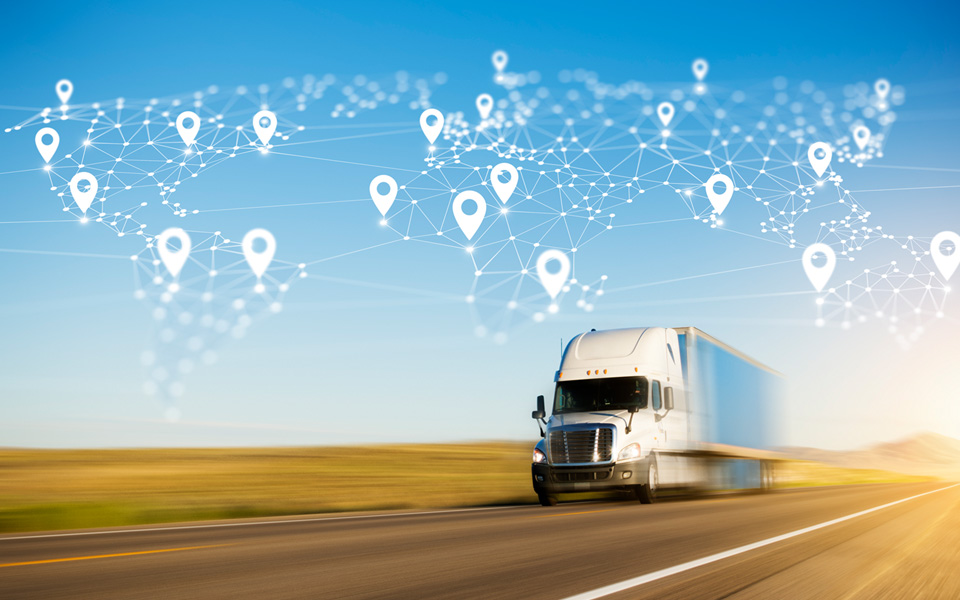*On June 1, 2023 Emerson’s Climate Technologies business became a new standalone company – Copeland. Though our name has changed, we are building on more than a century of HVACR innovation and industry leadership, and Copeland continues to offer the same products, industry stewardship, and learning opportunities you’ve grown to trust. Information found on this webpage posted before June 1, 2023 may contain our old name or branding, but you can be at ease knowing it was created with the knowledge and expertise of Copeland.
HVACR Business recently invited me to participate in an executive roundtable on the evolution of the commercial refrigeration sector. You can read the full article here and more on our perspective below.

Three Trends Shaping the Commercial Refrigeration Sector
The commercial refrigeration sector is experiencing a period of innovation unlike any other in its history. Regulatory pressures, changing consumer habits and the growing demands for more efficient and sustainable technologies are transforming the market. Business owners and supermarket operators have a tremendous range of environmentally friendly, operationally efficient and — perhaps most importantly — regulatory-compliant solutions from which to choose.
But in order to do this, operators must navigate an ever-growing pool of refrigeration solutions, strategies and technologies. Keeping current on emerging technologies and consumer trends while anticipating future regulatory requirements are the keys to getting the best return on this long-term investment.
More choices
Without a doubt, the greatest challenge for original equipment manufacturers (OEM) and operators alike is transitioning to the future of refrigeration systems. New refrigeration equipment, components and technologies are coming online in response to global demands for lower-GWP (global warming potential) refrigerants. In addition, more flexible refrigeration architectures are being launched to satisfy the move toward smaller retail footprints.
As a result, operators are facing a proliferation of refrigeration scenarios, each posing its own set of advantages and drawbacks. Decisions must be weighed against a host of factors, such as environmental impact, total cost of ownership, long-term viability and the ability to adapt to evolving consumer behaviors and potential future regulations. Education is key here; contractors and manufacturers will need to step up and help retailers explore and identify the options that will best satisfy their needs.
More connected
Automation and internet of things (IoT) technologies will increasingly play roles in this sector. System electronics are helping to manage refrigeration cycles and system operations, while compressor protection and diagnostic capabilities are simplifying service and maintenance processes. These connected components will provide operators with unprecedented visibility into critical facility systems that extend beyond refrigeration to include air quality, lighting and energy management. Supported by user-friendly platforms that integrate these key systems, operators will be able to more efficiently manage and optimize facility and energy performance.
More complex
The shift to lower-GWP refrigerants and the growth of new technologies pose a unique set of challenges to contractors. Extensive training on the proper procedures for recovering and servicing new and natural refrigeration systems, such as CO2-based systems, will be imperative. Contractors will also need to increase their knowledge of the landscape so they can align their customers’ goals with the available equipment options. This may require higher upfront costs, but they will pay off in the long term as today’s innovations become the norm.
Ready for the future
At Emerson, we are at the forefront of environmentally friendly and financially viable refrigeration systems and supporting technologies. Moreover, we’ve taken a proactive approach to contractor education, providing a wealth of options to help technicians increase their skills and expand their knowledge base to better serve customers.
At every step, we strive to help operators make informed decisions to maximize their investments. After all, commercial refrigeration systems can — and should — be in service for decades. And with no end in sight to the dramatic changes that are shaping the industry, operators need solutions that can adapt to and grow with the next generation of technologies and system architectures. Our approach to total refrigeration system sustainability is designed to deliver solutions that satisfy operational and sustainability objectives today, while anticipating the needs of tomorrow.

8 proven strategies for rigorous cold chain management
Preparing for the approval and safe use of A2Ls in commercial refrigeration applications...
Protection for high-value shipments just got even better
We’re excited to announce the release of Copeland’s newest real-time tracker, the GO Real-Time...

Three proven strategies to prevent cargo theft
The over-the-road (OTR) transport industry is experiencing a surge in cargo thefts. As thieves...
